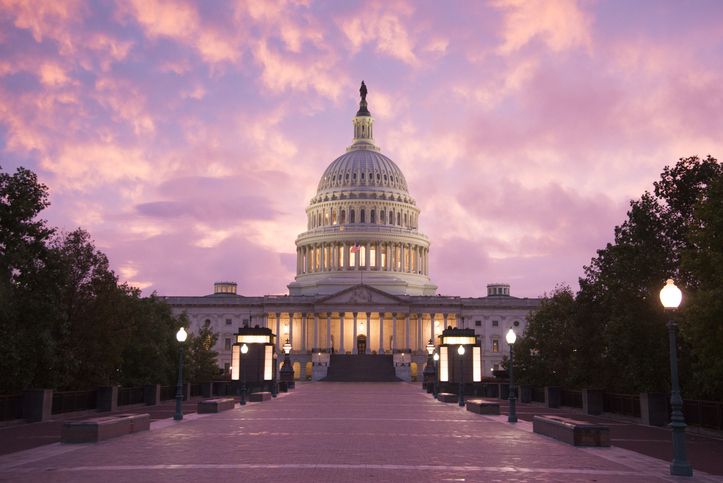
In five months, midterm elections will determine the makeup of a Congress that could revive or reject legislation to lower drug prices. Political strategists project that Republicans will take control of the House of Representatives. This year’s vote is a “change election,” and such elections typically do not go in favor of those in power, said Dan Todd, founder of the Todd Strategy Group. But the change in power won’t remove the pressure to do something about drug prices.
“It will be a good day (for Republicans) on election day and a bad day when they realize what they have to do,” Todd said.
Todd, whose firm represents companies across the healthcare sector, spoke during a panel discussion Wednesday at the annual meeting of the Biotechnology Innovation Organization (BIO) in San Diego. Vin Roberti, chairman and co-founder of Roberti Global, joined Todd on the panel. Roberti projected that Democrats could lose 20 to 25 seats in the House. Todd put his estimate at about 20 seats, adding that the makeup of the body “will look more ‘Trumpy’ than it does now, which for our industry is more challenging.”
The main drug price legislation that current and incoming lawmakers could face is the wide-ranging “Build Back Better” bill. As written and passed in the House of Representatives last year, Build Back Better was overreaching, Roberti said. More and more elements were added to the legislation, an expanding scope that made it less likely to pass in the Senate. The bill was supposed to be about infrastructure, but it grew to encompass other areas, with provisions such as capping insulin prices and giving the federal government the ability to negotiate the prices of some high-cost drugs covered under Medicare Part B and Part D.
Part D of Medicare covers prescription drugs. But the out-of-pocket costs, such as copays and high deductibles, mean that it doesn’t work for a lot of patients, Todd said. Nevertheless, the political messaging is that Part D works, and it should be left as is. Patient groups realize these out-of-pocket costs need to be addressed, but the question remains whether Democrats and Republicans will find enough middle ground to resolve it. “I think it will drive a lot of discussion,” Todd said. “I don’t think it’s something that Republicans can ignore at this point.”

A Deep-dive Into Specialty Pharma
A specialty drug is a class of prescription medications used to treat complex, chronic or rare medical conditions. Although this classification was originally intended to define the treatment of rare, also termed “orphan” diseases, affecting fewer than 200,000 people in the US, more recently, specialty drugs have emerged as the cornerstone of treatment for chronic and complex diseases such as cancer, autoimmune conditions, diabetes, hepatitis C, and HIV/AIDS.
BIO’s policy position has been that legislation should focus on patients’ out-of-pocket costs, and that laws capping or controlling drug prices would have the unintended consequence of disrupting the innovative research that brings new medicines for patients.
If Republican control of Congress stalls drug price legislation, one alternative is presidential action, such as executive orders, Roberti said. President Biden could also put together a project about drug pricing. Roberti added that while politicians talk about drug pricing, they don’t understand the ramifications, such as the impact on research and development. But Roberti also called out the biopharmaceutical industry, saying that the sector does not do a good job of bringing its people to Capitol Hill to advocate. If lawmakers heard from people from their own districts who are creating drug innovation, that could persuade them to take a different position.
Other challenges for the biopharmaceutical industry include the rise of populism and the lack of understanding of how the system works, Roberti said. As an example, he pointed to the Prescription Drug User Fee Act (PDUFA), the law that sets fees paid by biopharmaceutical companies to fund the drug review process. The law is up for reauthorization this year, but Roberti questioned how many members of Congress even know what PDUFA is. Lawmaker experience matters, and that experience is being lost. Roberti said that a few years from now, there will be more lawmakers in Congress driven by something other than knowledge.
“That’s what concerns me for your industry,” he said.
Photo: MikeyLPT, Getty Images












